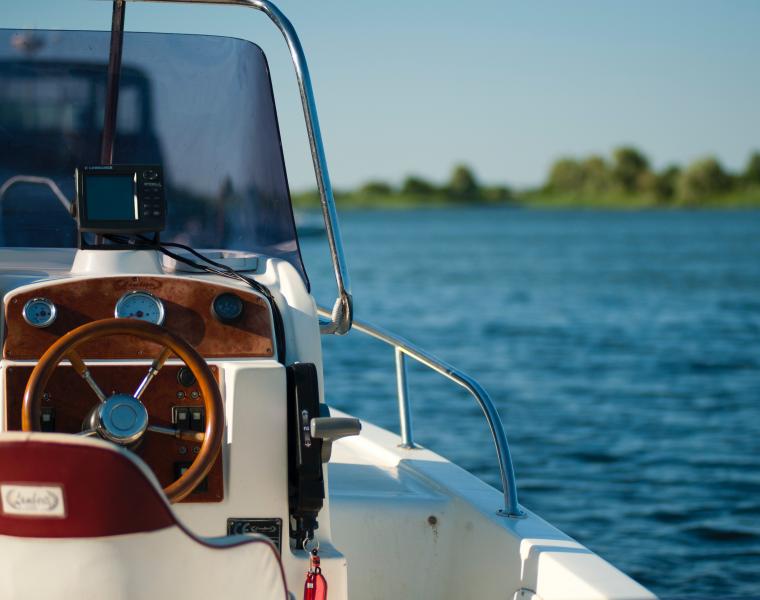CELTH presents challenging 'Research agenda for making Leisure, Tourism, and Hospitality more sustainable'
The hospitality sector needs to get started NOW with the sustainability transition
The sustainability challenges of the hospitality sector are enormous, intertwined, and becoming increasingly urgent as 2030 approaches. Leaning back is no longer an option. We are no longer poldering away the sustainability challenges – with climate change first. For example, the national Climate Agreement requires a 49% reduction in carbon emissions by 2030 compared to 1990, and aviation must return to 2005 emissions levels. It is time for action to accelerate the much-needed transition. But how do we arrive at a sustainable leisure, tourism, and hospitality sector? Which challenges must be tackled for this? Where are the priorities? And above all, who is acting now?
“We see far too little action and speed in the sector, even though it is necessary if we want to achieve the 2030 targets”, says Menno Stokman, director of the Center of Expertise Leisure, Tourism & Hospitality (CELTH). His organisation has taken up that gauntlet and drawn up the 'Sustainability Research Agenda for Leisure, Tourism and Hospitality'. According to Stokman, every organisation should ask themselves what they can do in concrete terms. “This agenda provides direction for smart sustainability together.”
CELTH and NBTC give substance to the ambitions
The 'Research agenda for making Leisure, Tourism and Hospitality more sustainable' is the first project on the theme of sustainability of the Action Agenda 2030 Destination Netherlands and provides, among other things, valuable input for the roadmap Climate Neutral Tourism in the Netherlands. In this way, both CELTH and NBTC give substance to the ambitions that they made tangible by signing the Glasgow Declaration.
According to sustainability researcher Harald Buijtendijk of the Breda University of Applied Sciences, it is important not to have to pay the price of passivity in eight years time. That is why action is needed now: "Fortunately, that realisation is increasing and has now led to this CELTH research agenda. "However, that is not simple. “The sustainability challenges of the hospitality sector are enormous, intertwined and are also becoming increasingly urgent,” says Buijtendijk, who mainly wants to offer perspective with the agenda. “By now working together on concrete projects that quickly yield tangible results and make the sector more future-proof.”
Holistic view
Professor of Sustainability in Hospitality and Tourism Elena Cavagnaro of NHL Stenden about the unique approach: “I am delighted that this research takes a holistic view of the challenges we face.” On the one hand, the agenda aims to address the complexity of the problem, but also to provide tools for taking action. “The good thing about this agenda is that you can tackle a seemingly small problem, where the answer often solves more issues.” Cavagnaro provides a good example for the catering industry: "By changing the menu with less meat and more plant-based food, you immediately tackle problems related to the climate, health and waste."
Challenge the sector with six key questions
The research agenda groups the most urgent challenges around six key questions, which the sector is challenged to tackle. Professor of Sustainable transport & tourism Paul Peeters of Breda University of Applied Sciences emphasises: “Setting 6 priority co-creation projects certainly does not mean that the other 19 projects should not be tackled for the time being. All 270 questions and 25 projects are urgent and need to be addressed in the coming years.”
Project 1: Communication for sustainable consumption (NL) helps entrepreneurs and policymakers to measure, predict and effectively influence the Dutch public when it comes to sustainable consumer behaviour.
Project 2: Implementation of sustainable fuels in all transport modes and production sectors (EU) identifies and tests measures that can help policy makers to effectively distribute sustainable fuels across transport modalities.
Project 3: Sustainable cities (EU) addresses a range of urban problems and related knowledge gaps around mobility, logistics, air pollution, energy consumption, waste, noise, and social quality to provide solutions for cities to become more sustainable.
Project 4: Business models and products for more sustainable consumption (EU) is about stimulating entrepreneurs to create better and more sustainable products for holidaymakers in the Netherlands and Dutch holidaymakers abroad.
Project 5: Tourism as a catalyst for sustainability in other environmental policy domains (EU) is about using tourism to tackle structural problems in the environmental domain. Then you can think of improving biodiversity but also tackling the nitrogen crisis.
Project 6: Circular economy destinations & events (NL) concerns the stimulation of circularity by both reducing and reusing waste production, energy, and water in specific destinations and events in the Netherlands.
Accelerate
According to Buijtendijk, cooperation with other sectors can accelerate tourism. “The sustainability challenges identified are systemic and span a wide range of policy areas. By recognising this interdependence, room is created for strategic collaborations across subsector boundaries. In this way, cost-sharing (time, resources) is possible, and projects become more feasible in terms of social relevance and associated financing options.”
It is therefore good for practical reasons alone to start with the projects where the urgency and cooperation potential are greatest and also to link these projects to other concrete ongoing initiatives such as the 'Climate-neutral Tourism in the Netherlands' roadmap. This roadmap, which is being developed by NBTC, together with CELTH, DMOs, and sector parties, outlines the road to climate-neutral tourism for the Netherlands. According to project leader Ewout Versloot of NBTC, the research agenda has helped enormously in framing the sustainable challenges: “From the enormous number of questions that have been raised, you can see how gigantic and comprehensive the sustainability issue is. Thanks to the research agenda, we now know where we stand, what still needs to be done, where the challenges and opportunities lie, and what works and what doesn't.”
Based on her behavioral expertise, Cavagnaro sees that it is mainly companies' turn to act: “It is far too easy to say that consumers should behave differently. Because if you don't offer sustainable options, consumers can't choose them either. Companies really have a big responsibility.” And there are already some bright spots. For example, a coalition has been forged with small and large players in the broad domain of 'Circularity in Hospitality'. According to Buijtendijk, the start is there, but action must now be taken, and decisions must be made. “There is energy to do it. Now go ahead and implement. That is especially important in the field of sustainability because time is just running out.” Versloot sums up the urgency once again with "Let's go, Let's go, Let's go!"
Interested in getting started?
The report 'Sustainable Research Agenda for Leisure, Tourism and Hospitality' can be downloaded free of charge from the CELTH site. Or look online at the presentation that Harald Buijtendijk gave at the inspiration session of the Trend Congress. You can read the background article on the NRIT-site (in Dutch).
Would you like to get started with one of the 128 questions from the 6 priority projects? Please contact Harald Buijtendijk of the Breda University of Applied Sciences via Buijtendijk.H@buas.nl. We are happy to link you to other stakeholders and researchers.
Also follow the roadmap 'Climate Neutral Tourism in the Netherlands' where NBTC, together with DMOs, the Ministry of Economic Affairs and Climate, industry associations, entrepreneurs, CELTH and many other partners are accelerating towards climate neutral tourism. The roadmap will be presented at the Tourism Summit on 26 September.






